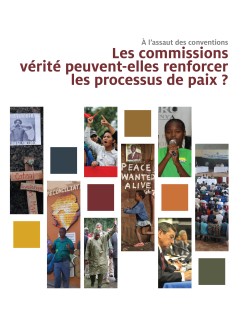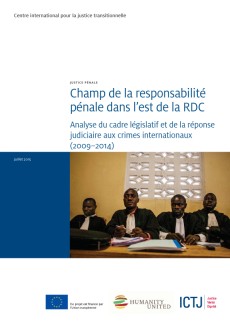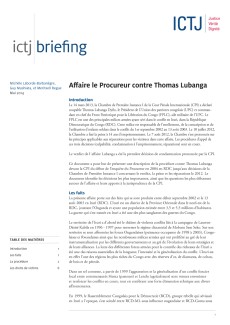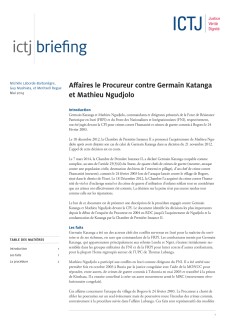Tout au long de l'année 2023, les experts de l'ICTJ ont offert leur point de vue unique sur les dernières nouvelles à travers le monde dans le cadre du Rapport mondial. Leurs commentaires perspicaces ont mis en lumière l’impact de ces événements sur les victimes de violations des droits humains ainsi que sur les luttes plus larges pour la paix et la justice. Dans cette édition, nous revenons sur l'année écoulée à travers la rubrique Choix de l'Expert.
Bibliothèque de ressources
La bibliothèque de ressources contient tous les travaux publiés par l’ICTJ depuis 2001 jusqu’à nos jours, regroupés par catégorie et consultables par mot clé, pays, thème, langue, etc.
Nous continuons d'ajouter des documents archivés à la bibliothèque, en particulier des produits multimédias tels que des vidéos, des galeries de photos et des enregistrements audio. Veuillez revenir régulièrement pour parcourir notre collection en expansion.
Nous continuons d'ajouter des documents archivés à la bibliothèque, en particulier des produits multimédias tels que des vidéos, des galeries de photos et des enregistrements audio. Veuillez revenir régulièrement pour parcourir notre collection en expansion.














